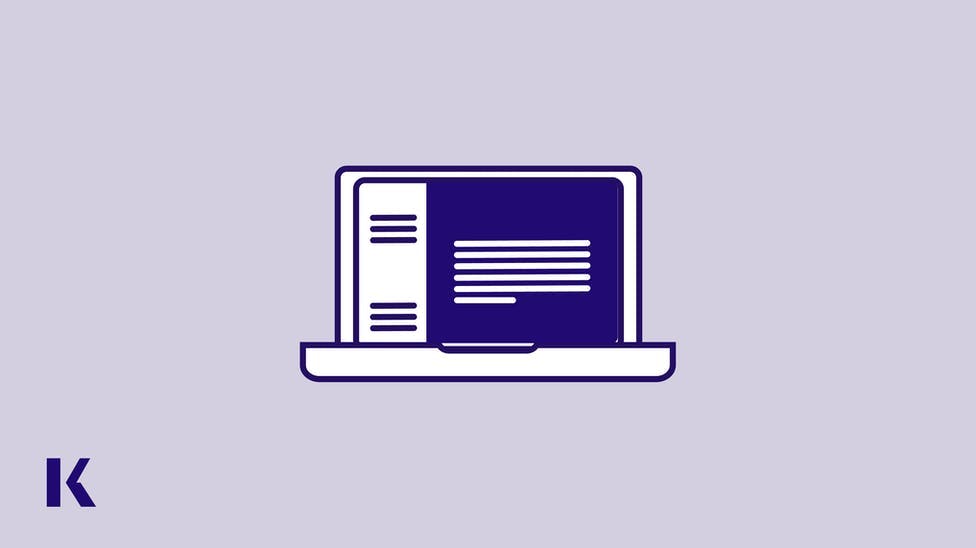Kaplan Medical’s AI Tutor Has Arrived
by Jonathan Bruner, D.O., Executive Director of Institutional Medical Programs | November 24, 2025

The conversation about how AI will impact medical education is everywhere you look. One area where we at Kaplan consistently see it is in relation to board preparation. As you know, doing well on these exams comes with an immense amount of pressure. There is a vast and complex body of knowledge, in addition to being able to perform well on the exam format. To help ease this pressure, we built our own Kaplan Medical AI Tutor. This tool provides students with the personalized support they need to stay engaged and maximize outcomes during their board preparation.
Solving Education's "Engagement Loop" Problem
Perhaps the most impactful function of the AI Tutor is its role in what Kaplan calls the "medical prep cycle.” This is a critical feedback loop for student learning that involves content review, question practice, review of results, and the use of those results.

The long-standing problem in this cycle has been the moment a student gets stuck. Previously, encountering a difficult concept during question practice forced students to search through additional resources such as books, videos, or websites. This constant content switching leads to a derailment of study momentum. This is an inefficient learning process.
Kaplan Medical AI Tutor's core function is to keep the student engaged within the learning cycle. By providing context-aware answers directly within the platform, it eliminates the need to search elsewhere. By resolving this core point of friction, the hypothesis is that students will simply do more and perform better; a theory supported by early data.
Multilingual Understanding Meets Advanced Image Breakdown
Beyond being able to answer questions, our AI Tutor has a wide range of sophisticated capabilities that position it as a subject matter expert. Our AI Tutor can generate additional, exam-like multiple-choice questions on a given topic or even create flashcards to reinforce learning. It can contextually analyze and explain on-screen content, including complex medical images. One example from the webinar that was presented was a question that included an image of a CT scan. When reviewing that question, a student can ask our AI Tutor, “Please explain the image in this question.” Their AI Tutor will then respond with a detailed breakdown of all the CT scan’s relevant findings. Additionally, the Kaplan Medical AI Tutor provides multilingual support in nearly every language. Meaning it will respond in the same language as the user's prompt, making it an accessible tool for a diverse, global student body.
The First Proof of Success Is a Massive Leap in Effort
While improved exam scores are the ultimate goal, Kaplan's strategy for measuring success is more nuanced, following a framework we call the "Key Results Model Pyramid."

In this model, success is built on a foundation of leading data metrics. We collect data points such as total interactions, questions completed, and completion velocity, which allows us to track how our AI Tutor is being used and determine ways to make it even more effective. From there, we arrive at our first Key Result: Engagement. To determine this, we examine the number of sessions a student has used the AI Tutor, the duration of those sessions, and the number of follow-up prompts a student submits. We hypothesize that, when compared to previous groups that did not have access to AI Tutor, the engagement will be much higher. All of this leads to the second Key Result at the top of the pyramid, Score Increases. Ultimately, by continuing to keep students engaged in the prep cycle, this will lead to more practice, more preparation, and their best possible scores on their medical board exams.
We rolled out AI Tutor for our MCAT product line, and it is indeed showing the increased engagement we hypothesized to be true. Student results have shown:
- 20% Increase in Questions Attempted
- 24% Increase in Overall Activities Completed
This dramatic increase in engagement demonstrates that this tool is effectively meeting student needs and reducing friction in the study process.
Maximizing Faculty-Student Interaction Through AI Efficiency
A common concern we hear regarding AI is that it aims to replace human experts. Kaplan's approach, however, is not ever to replace but rather to offer strategic tools that amplify the impact of medical education. Specifically, our AI Tutor provides real-time, professionally vetted information that is critical for learning but can be otherwise challenging to deliver instantly to every student. It builds confidence quickly by clarifying any doubts and efficiently addressing any student needs. This efficiency opens up additional teaching opportunities, allowing for a greater focus on direct faculty-student interactions, such as hands-on clinical training. Additionally, providing this resource demonstrates an institution’s commitment to its students’ success and to offering the most advanced technology, which leads to improved student satisfaction and attracts new prospective students. Overall, Kaplan Medical’s AI Tutor is an enhancement that allows educators to focus on what they do best: teaching, mentoring, and inspiring students.
Kaplan Medical’s AI Tutor: A Smarter Way to Study
Our analysis reveals that Kaplan Medical’s AI Tutor represents a thoughtful integration of technology designed to address specific, long-standing problems in the educational workflow. By fostering the "engagement loop" and utilizing a tiered "pyramid model” to validate its impact, our AI Tutor can be leveraged to drive the very student effort that is foundational to success.
Learn more about the innovation behind Kaplan Medical’s new AI Tutor and watch a real-time demonstration in our recent webinar below, or book a demo.

I was born and raised in the suburbs of Detroit, Michigan, and I am a third-generation osteopathic physician. My career path has been most influenced by an interest in both science and education. I graduated from the University of Michigan with a bachelor of science degree, major in biology and minor in chemistry, from the School of Education. Becoming a physician was the natural intersection of my interests, so I went on to graduate from the Michigan State University College of Osteopathic Medicine before completing my residency in Osteopathic Neuromusculoskeletal Medicine (ONMM) there as well. I practiced and worked as an associate professor for 18 years and also worked as a residency director for two ONMM programs before joining Kaplan.
See more posts by Jonathan Bruner, D.O., Executive Director of Institutional Medical Programs
